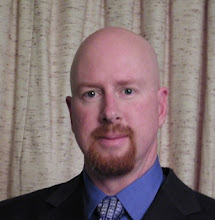The quoted definitions of what a wiki is are somewhat hard to understand. But for me, visualizing Wikipedia as an example makes it more clear. It's a place where information and knowledge is shared in the form of definitions, instructions and references, including web links. So how would this be good for an educational or training atmosphere? lets just say it's about as good for that as water is for plants. Akin to a devoted Knowledge management system, a wiki provides a centralized location for definitions, job aids and training materials that make a company's training accessible 24/7. Need a workflow diagram? Information about company leave time? A schedule of upcoming training seminars. It can all be linked in one ay or another in a wiki. But due to the public, or at least somewhat insecure nature of information on a wiki. A company would likely be more comfortable using a dedidcated KMS (knowledge Management System) such as Microsoft's Sharepoint. But in a way, one might even be able to argue that the flow of a KMS is really just a different form of wiki.
For education, the wiki really shines. So much of learning comes from the exploring and interactions with peers. Being able to share this, and even build upon other's experiences could create a learning tool that can be shared with future learners, and even be a source of research. A wiki is perfect for group activities, for discussions, and for sharing projects - not just with the rest of the class, but also with the world.
But the key to wikis is the self-monitoring. In fact it is a critical aspect. Since information can be posted anyone in a group, or in the case of a public site like Wikipedia anyone in the world, can post and edit information. From my own experience and as a simple test, I challenged the self-monitoring if Wikipedia once. By editing information within a page about Elvis Presley, I changed the information to indicate that Elvis was alive and living in a small house in Roswell New Mexico. I monitored that post for three days before someone deleted it. (I would have eventually fixed it myself, of course) The point is, as much as wiki can provide acuurate information, it can also provide inaccurate information. But herer is no doubt it has tremendous value in learning. Personally, I find myself often visiting Wikipedia to learn about something from history, or to find out a definition (I even used it to look up the meaning of Wiki. Derived from the Hawaiian term wiki wiki, meaning fast)
So for this week, I am going to try out a demo of GroveSite which is a wiki development software. Impressions to come!
Subscribe to:
Post Comments (Atom)

Brian,
ReplyDeleteI agree with your analysis of what a wiki is or could be. I found the wiki to be more like a blog in the sense that you could build on a discussion. I too find myself referring to wikipedia for content. I guess its the most practical application. I just don't see the need for millions of contributors to edit a specific topic. But then again it is a small world.
Hey guys --
ReplyDeleteYou should take a look at the book Wikinomics -- it will give you a somewhat different perspective on wikis. The author sees the wiki-way (sounds like a cult) as a way of accessing talent and ideas outside the boundaries of our usual social and business connections.
If we have course wikis, or business wikis, we can also restrict who has access and what kinds of editing and writing privileges they have.
Oh, Elvis is actually living in Minnesota and works at a bowling alley near Hibbing.
Hi All,
ReplyDeleteAs a teacher I have a love hate relationship with Wikipedia. I consider it the go to place to begin my exploration of a new subject. But every time I grade papers I see a cut and paste from Wikipedia. Some students don't even hide the links. For me it's just a starting point. For them it means getting the paper done in time to watch CSI.
I have eliminated Wikipedia as a reference source for papers because it can contain misinformation. For example, Elvis is in Michigan, not Minnesota. (The bowling alley reference is correct.)